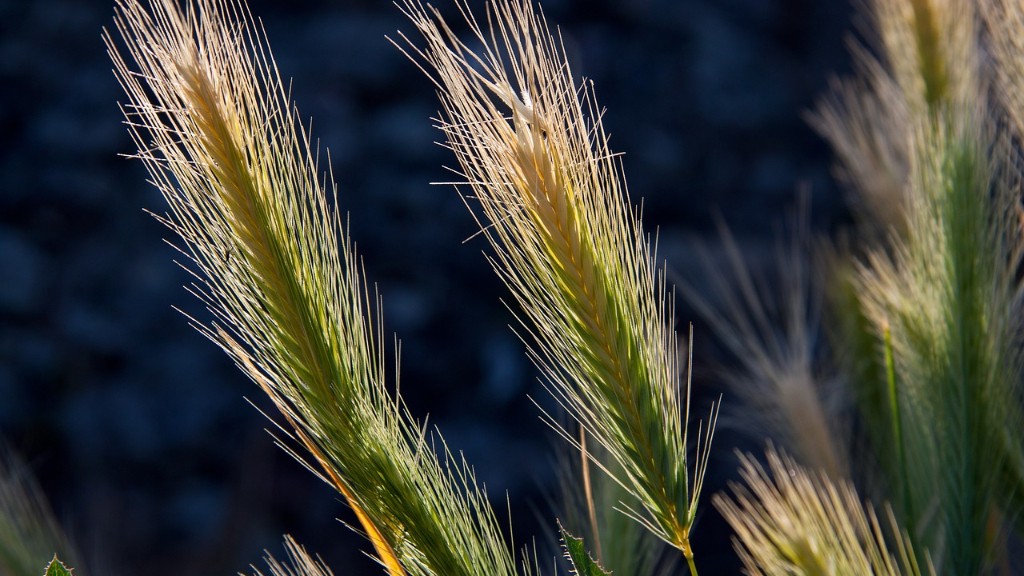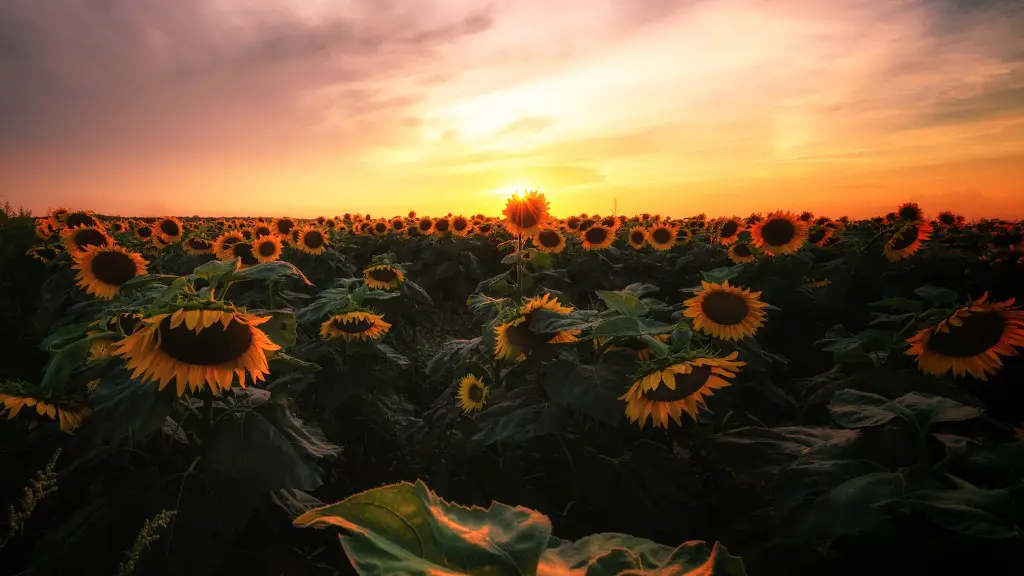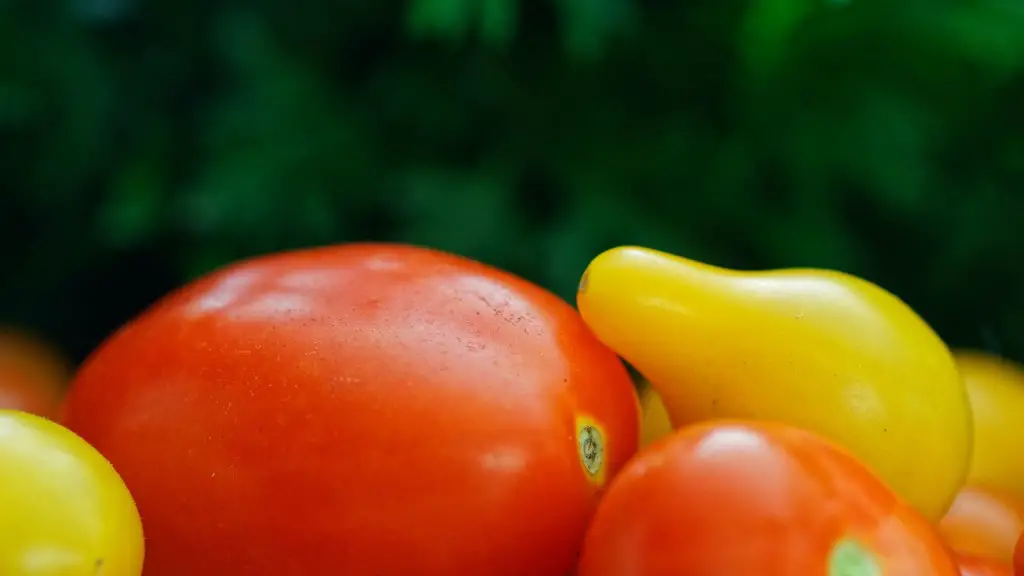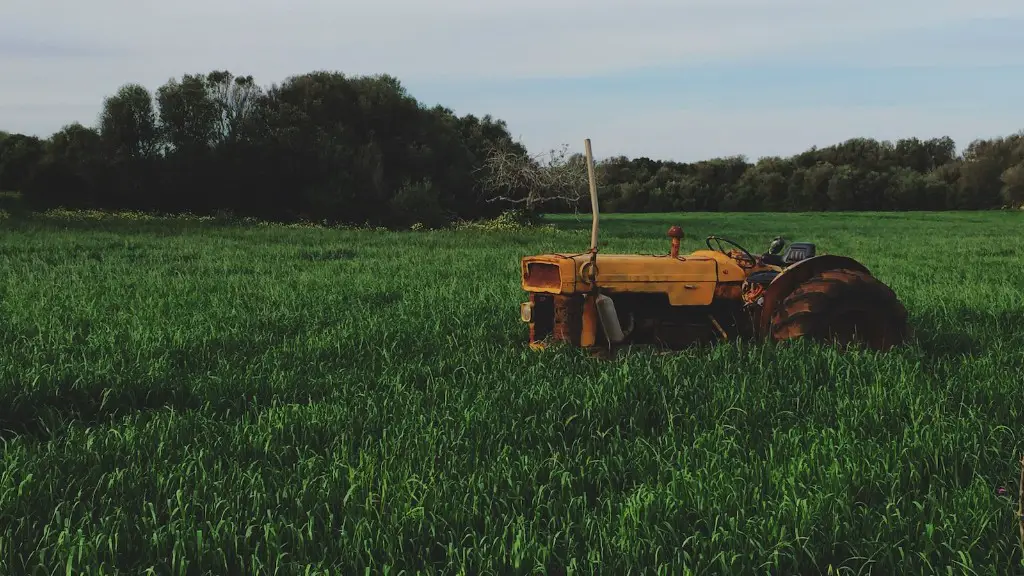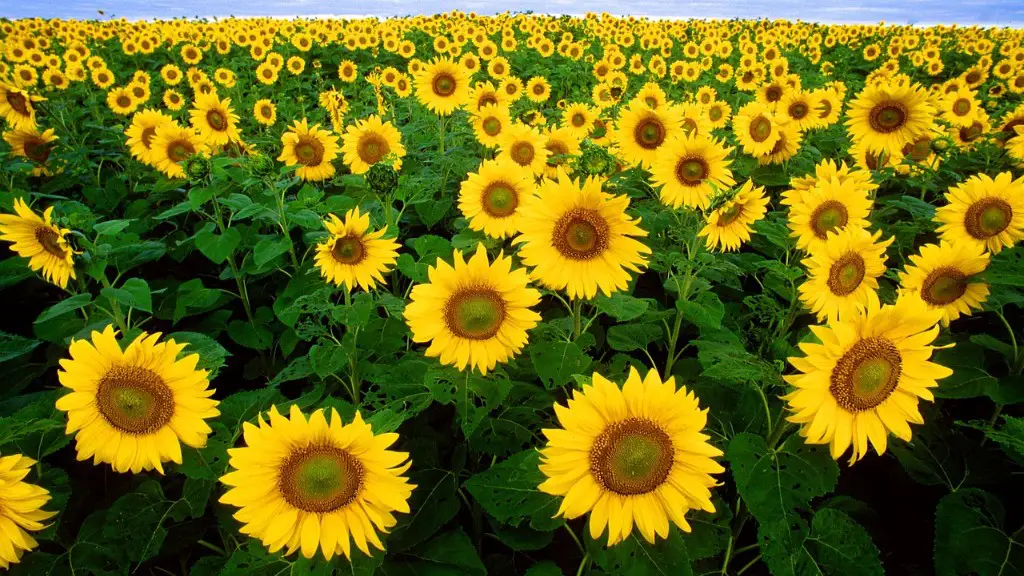Agriculture is one of the oldest human activities. For thousands of years, early people lived as hunter-gatherers, moving from place to place in search of food. About 10,000 years ago, early people began to domesticate plants and animals, and to settle in one place to cultivate the land. This switch from a hunting-gathering lifestyle to a settled, agriculturally based lifestyle marked a major turning point in human history. Agriculture allowed for the growth of civilizations, and the rise of cities and complex social structures. It also had a profound impact on human health and diet.
Agriculture allowed early people to settle in one place instead of moving around to find food. They could build permanent homes and villages. Agriculture also allowed people to produce more food than they needed, so they could trade with other people for things they could not produce themselves.
How did agriculture affect early people?
Agricultural communities were some of the first human settlements. They developed approximately 10,000 years ago when humans began to domesticate plants and animals. By establishing domesticity, families and larger groups were able to build communities and transition from a nomadic hunter-gatherer lifestyle dependent on foraging and hunting for survival. Agricultural communities allowed for the development of civilizations and the growth of cities and states. They also allowed for the growth of food surpluses, which allowed for the development of trade and commerce. Agricultural communities continue to be important today, as they provide food for billions of people around the world.
The agricultural revolution was a time of great change for humans. It led to a dependence on the land and a fear of scarcity. It also resulted in a decline in nutrition and an increase in infectious diseases.
What are 3 effects of agriculture
While the development of agriculture in a region can have positive effects on the natural life, oxygen production and climate in the region, it can also lead to negative effects such as inorganic nitrate pollution, pesticide pollution and salinity problems. These problems are especially common in regions where agriculture is intensive.
The development of agriculture is called a revolution because it has had such a radical impact on human society throughout history. Agriculture has allowed for the invention of the first cities, the growth of the human population, and the development of industry.
What were 3 positive changes from the agricultural revolution?
The 2nd Agricultural Revolution was a major turning point in human history. It led to advances in food production which in turn led to better diets, longer life spans, and an increase in population. As population increased, so did the pool for workers in industry. This had a profound impact on the world economy and ushered in a new era of prosperity.
Smaller jaws led to dental issues like malocclusion, or dental crowding, according to a study published earlier this month in the journal PLOS One.
What impact does agriculture have on human society?
Agriculture has a major impact on society. It is the backbone of many economies, providing food, habitat, and jobs. It also provides raw materials for food and other products. Agriculture has a major impact on society, and it is important to understand how it works.
Agriculture is one of the leading sources of pollution in many countries. Pesticides, fertilizers and other toxic farm chemicals can poison fresh water, marine ecosystems, air and soil. They also can remain in the environment for generations. This is a serious problem that needs to be addressed.
What are 5 important of agriculture
Agriculture plays a vital role in supplying the world with food and fabrics. Cotton, wool, and leather are all agricultural products that provide essential materials for everyday life. In addition, agriculture also provides wood for construction and paper products. The methods used to produce these products may vary from one part of the world to another, but the overall goal is to provide people with the resources they need to live.
While the negative impacts of agriculture on the environment are serious, there are also positive impacts that can be made. Agriculture can help to trap greenhouse gases within crops and soils, or mitigate flood risks through the adoption of certain farming practices. These positive impacts can help to offset the negative impacts of agriculture and help to improve the overall environmental profile of the industry.
What were the 4 results of the Agricultural Revolution?
The Agricultural Revolution saw a huge increase in agricultural production thanks to new technologies and advances in Agricultural practices. This in turn led to unprecedented population growth and new opportunities for trade and development. One of the most notable changes was the migration of people from rural areas into urban centres. This shift helped to create a more coherent and loosely regulated agricultural market, and allowed for new levels of economic growth and development.
The Agricultural Revolution was a pivotal moment in human history, ushering in a new era of increased productivity and growth. The introduction of new crops and crop rotation techniques allowed for more efficient use of resources, leading to higher yields and better agricultural output. Further advancements in irrigation and drainage systems further increased productivity, making agriculture more efficient and reliable. This period of innovation and growth laid the foundation for modern civilization, and the impact of the Agricultural Revolution can still be felt today.
What was the most important effect of the Agricultural Revolution
The Agricultural Revolution was a time of great change for farmers. They developed new techniques for growing crops, including the use of crop rotation. This allowed them to produce more food, which fed more people and helped to grow the population. The Norfolk four-course rotation was one of the most important developments of this time. It involved growing turnips and clover, which improved the quality of the soil and made it more productive.
Agriculture does have a large impact on the environment, both positive and negative. Agriculture can lead to soil erosion, water pollution and contribute to climate change and deforestation. However, agriculture can also help reduce CO2 levels, improve air quality, provide habitat for wildlife and provide food. Therefore, it is important to be aware of the impact agriculture has on the environment and to take steps to ensure that agriculture is sustainable.
Why was agriculture important to the development of civilization?
Farming has been a cornerstone of human civilization for millennia. It enables us to grow all the food we need in one place, with a much smaller group of people. This has led to massive population growth and the creation of cities and trade. Agriculture has had a profound impact on the course of human history.
In Colonial America, agriculture was the primary livelihood for 90% of the population. Most farms were geared toward subsistence production for family use, and most towns were shipping points for the export of agricultural products. The agricultural sector was very important to the American economy and played a major role in the country’s development.
Final Words
The arrival of agriculture changed the lives of early people in a number of ways. The most obvious change was the transition from a nomadic to a sedentary lifestyle. Agriculture also allowed for the domestication of plants and animals, which resulted in a more reliable food supply. This led to population growth and the development of civilizations.
Agriculture allowed early people to settle in one place, which led to the development of civilizations. Agriculture also allowed for the domestication of plants and animals, which led to the development of new technologies and ways of life.
